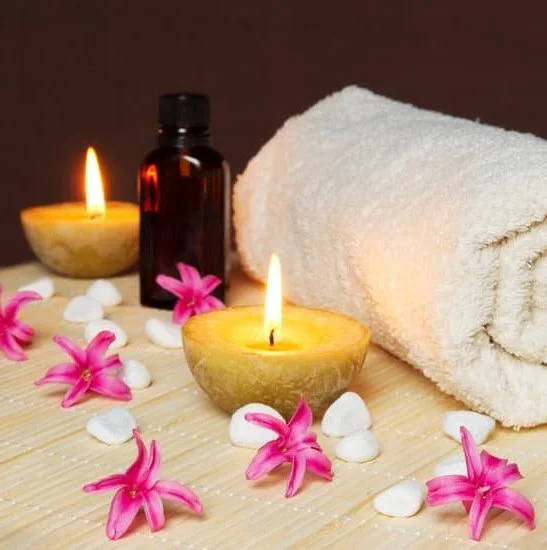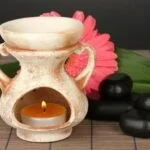Are aromatherapy diffusers safe in hot tubs? Aromatherapy diffusers are becoming increasingly popular for use in hot tubs, offering a range of benefits to enhance the relaxation and therapeutic experience. But with this rise in popularity comes the question of safety. In this article, we will explore the use of aromatherapy diffusers in hot tubs, including the benefits, potential hazards, and expert recommendations for safe usage.
Aromatherapy diffusers are devices that release essential oils into the air, providing a variety of benefits such as stress relief, improved mood, and relaxation. When used in hot tubs, these diffusers can enhance the overall experience by creating a soothing and calming atmosphere. The use of aromatherapy in hot tubs has gained traction among spa enthusiasts looking to elevate their relaxation sessions.
As more hot tub owners incorporate aromatherapy into their routine, it’s important to consider safety considerations. This includes understanding the potential hazards of using aromatherapy diffusers in hot tubs and taking precautions to ensure safe usage. Additionally, selecting high-quality oils and diffusers is crucial for minimizing any risks associated with using these devices in a hot tub setting. These factors will be explored further in subsequent sections of this article.
Understanding Aromatherapy Oils
Aromatherapy oils, also known as essential oils, are concentrated plant extracts that have been used for their therapeutic properties for centuries. These oils are derived from various parts of plants, including the flowers, leaves, stems, and roots, and each type of oil is associated with specific benefits and aromas. Some common examples of aromatherapy oils include lavender, eucalyptus, peppermint, tea tree, and chamomile. Each of these oils has its own unique scent and potential health benefits when used in aromatherapy.
When it comes to using aromatherapy oils in conjunction with aromatherapy diffusers in hot tubs, it’s important to understand how these oils work. Aromatherapy diffusers are designed to disperse the essential oil particles into the air in a fine mist or vapor so that they can be easily inhaled. The heat and moisture from the hot tub environment can enhance this dispersal process, creating a soothing and aromatic experience for hot tub users.
It’s also crucial to consider the potential benefits of different essential oils when choosing which ones to use in a hot tub setting. For example, eucalyptus oil is often lauded for its respiratory benefits and ability to clear congestion, making it a popular choice for those looking to enhance their hot tub experience with aromatherapy.
On the other hand, lavender oil is well-known for its calming and relaxation-inducing properties, making it an excellent option for creating a tranquil atmosphere in the hot tub. By understanding the unique qualities of each essential oil, hot tub owners can tailor their aromatherapy experience to their specific needs and preferences.
| Aromatherapy Oil | Main Benefits |
|---|---|
| Lavender | Calming and relaxation |
| Eucalyptus | Respiratory health & decongestion |
| Peppermint | Mental clarity & headaches relief |
Safety Considerations
Using aromatherapy diffusers in hot tubs can enhance the relaxation and therapeutic benefits of soaking in warm water. However, it is important to consider the safety aspects of incorporating essential oils and diffusers into this setting. There are potential hazards associated with using aromatherapy diffusers in hot tubs, but these risks can be mitigated by taking proper precautions and using high-quality diffusers and oils.
Potential Hazards
One of the primary safety concerns when using aromatherapy diffusers in hot tubs is the potential for skin irritation or allergic reactions to the essential oils. The heat from the hot tub can cause these oils to be released at a faster rate, increasing the likelihood of sensitivity issues. In addition, there is a risk of respiratory irritation if the oils are too concentrated or if individuals have preexisting respiratory conditions.
Precautions
To minimize the risk of adverse reactions, it is important to dilute essential oils properly before using them in a hot tub diffuser. Additionally, users should be mindful of any existing sensitivities or allergies they may have to specific scents or ingredients. It is recommended to start with a small amount of oil and gradually increase as needed while monitoring for any negative effects.
High-Quality Oils and Diffusers
When using aromatherapy diffusers in hot tubs, it is crucial to invest in high-quality oils and diffusers that are specifically designed for use in water-based environments. Inferior products may leach chemicals into the water or become damaged by exposure to heat and moisture, posing additional risks to users.
It is advisable to purchase essential oils from reputable sources and ensure that the diffuser materials are durable and resistant to water damage. By selecting reliable products, individuals can enjoy the benefits of aromatherapy without compromising their safety.
Compatibility With Hot Tubs
When considering the use of aromatherapy diffusers in hot tubs, it is essential to ensure that the diffuser is compatible with the environment. Heat and moisture from the hot tub can impact the functionality and safety of certain diffusers, so it’s crucial to select an option that is specifically designed for use in such conditions.
Choosing a diffuser that is compatible with hot tubs involves looking for specific features. For example, selecting a diffuser made from durable materials that can withstand exposure to moisture and high temperatures is important. Additionally, some diffusers have built-in timers or settings specifically tailored for use in outdoor environments, such as near hot tubs and pools.
It’s also advisable to consider how the placement of the diffuser will affect its performance. Ensuring proper ventilation around the diffuser can contribute to its longevity and effectiveness. Ultimately, selecting a well-made, high-quality aromatherapy diffuser that is specifically designed for use in or around hot tubs will help ensure a safe and enjoyable experience.
| Feature | Description |
|---|---|
| Durable Materials | Select a diffuser made from materials resistant to moisture and heat. |
| Outdoor Settings | Look for diffusers with settings or timers tailored for outdoor use near hot tubs. |
| Ventilation | Ensure proper airflow around the diffuser for optimal performance. |
Aromatherapy Diffuser Maintenance
Aromatherapy diffusers can provide a luxurious and relaxing experience in hot tubs, but it is important to properly maintain these devices to ensure their safe and effective use. Proper care and cleaning of aromatherapy diffusers are essential for preserving their functionality and preventing any potential damage to the hot tub.
Proper Care and Cleaning
To maintain the integrity of aromatherapy diffusers, it is crucial to clean them regularly. This involves removing any leftover essential oils from the device and ensuring that no residue accumulates over time. Additionally, following the manufacturer’s instructions for maintenance is key to preserving the longevity of the diffuser.
Preventing Damage to Hot Tub
While using an aromatherapy diffuser in a hot tub can enhance the overall experience, it is essential to take precautions to prevent any damage to the hot tub itself. Avoid placing the diffuser directly on any surface within the hot tub where it could potentially cause harm. It is also advisable to monitor the diffusion process carefully to prevent over-saturation of essential oils, which could lead to unwanted residues in the water.
Frequency of Maintenance
The frequency of maintenance for aromatherapy diffusers may vary depending on usage. However, a general rule of thumb is to clean and inspect the device after each use, ensuring that it remains in optimal condition for future use in the hot tub. By maintaining this routine, individuals can continue enjoying all the benefits of aromatherapy without compromising safety or quality.
User Experiences
Aromatherapy diffusers have been gaining popularity among hot tub enthusiasts for the added sensory experience they bring to the relaxation and therapeutic benefits of soaking in a hot tub. Many individuals have shared their positive experiences with using aromatherapy diffusers in their hot tubs, citing enhanced relaxation, stress relief, and overall enjoyment of their soak. Here are some real-life experiences from individuals who have incorporated aromatherapy into their hot tub routine:
- Jane S. from California: “Using essential oils in my hot tub has completely transformed my relaxation time. The soothing scents help me unwind after a long day, and it adds an extra layer of luxury to my hot tub experience.”
- Mark T. from Texas: “I was initially hesitant to try aromatherapy in my hot tub, but after incorporating it into my routine, I can’t imagine soaking without it. The subtle fragrance of the oils enhances the calming atmosphere of the hot tub.”
- Sarah L. from New York: “I love experimenting with different essential oil blends in my hot tub. It’s like creating my own personal spa experience at home. The aromas definitely elevate the overall ambiance.”
These user experiences reflect the positive impact that aromatherapy diffusers can have on the hot tub experience when used safely and responsibly. Experimenting with different oils and finding the right combination can add a personalized touch to your soak while promoting relaxation and well-being.
Expert Recommendations
Aromatherapy diffusers can be a fantastic addition to your hot tub experience, but it’s essential to use them safely and responsibly. Here are some expert recommendations for using aromatherapy diffusers in hot tubs:
- Choose high-quality oils: When using aromatherapy diffusers in hot tubs, it’s crucial to use high-quality, pure essential oils. Low-quality oils may contain synthetic additives or impurities that can be harmful when heated and dispersed into the air.
- Proper ventilation: Ensure that there is adequate ventilation around the hot tub when using an aromatherapy diffuser. This will help prevent the buildup of concentrated essential oil vapors, which could cause respiratory irritation for some individuals.
- Consult with a professional: If you have any health concerns or medical conditions, it’s advisable to consult with a qualified aromatherapist or healthcare provider before incorporating aromatherapy into your hot tub routine.
In addition to these recommendations, experts also advise against using certain essential oils in hot tubs due to their potential skin irritation or adverse effects when exposed to heat and water. Oils such as cinnamon, oregano, and clove are known to be particularly potent and should be used with caution in hot tub aromatherapy.
Ultimately, while adding an aromatherapy diffuser can enhance your hot tub experience, it’s important to prioritize safety and consult with professionals if necessary. By following expert recommendations and taking proper precautions, you can enjoy the benefits of aromatherapy without compromising safety in your hot tub.
Conclusion
In conclusion, the use of aromatherapy diffusers in hot tubs can provide a luxurious and relaxing experience for users. The benefits of aromatherapy, such as stress reduction, improved mood, and enhanced relaxation, make it a popular choice for hot tub enthusiasts. However, when using aromatherapy diffusers in hot tubs, it is essential to consider safety considerations to prevent potential hazards.
It is important to note that the quality of both the oils and the diffuser itself will significantly impact the safety and effectiveness of using aromatherapy in hot tubs. High-quality oils from reputable sources and well-maintained diffusers are crucial for a positive experience. Additionally, understanding how heat and moisture can affect the performance of aromatherapy diffusers is essential for choosing one that is compatible with hot tub use.
While there are potential risks associated with using aromatherapy diffusers in hot tubs, taking proper precautions and following expert recommendations can help mitigate these dangers. By maintaining regular maintenance of the diffuser and being mindful of the types of oils used, individuals can safely enjoy the benefits of aromatherapy in their hot tubs. Ultimately, with careful consideration and proper care, incorporating aromatherapy into hot tub use can enhance the overall experience while promoting relaxation and well-being.
Frequently Asked Questions
Are Aromatherapy Crystals Safe for Hot Tubs?
Aromatherapy crystals can be safe for hot tubs as long as they are specifically designed for use in hot water. It’s important to read the instructions and ensure that the specific crystals you’re using are suitable for hot tub use.
Using the wrong type of crystals can potentially damage the hot tub or cause skin irritation, so it’s best to use products that are labeled for hot tubs.
What Scents Can I Put in Hot Tub?
When it comes to scents for hot tubs, it’s important to choose essential oils that are safe for topical use and won’t cause any skin irritation or allergic reactions. Popular choices include lavender, eucalyptus, peppermint, chamomile, and citrus scents like lemon or orange.
It’s a good idea to start with small amounts of oil and gradually add more as needed to achieve your desired level of scent without overwhelming the senses.
What Diffuser Oils Do Spas Use?
Spas typically use a variety of diffuser oils depending on the type of atmosphere they want to create. Common diffuser oils used in spas include lavender for relaxation, peppermint for mental clarity and invigoration, eucalyptus for respiratory support, and citrus scents like lemon or orange for uplifting and energizing effects.
These oils are often carefully chosen to enhance the overall spa experience and provide therapeutic benefits for clients.

Are you looking for a natural way to improve your health and wellbeing?
If so, aromatherapy may be the answer for you.






